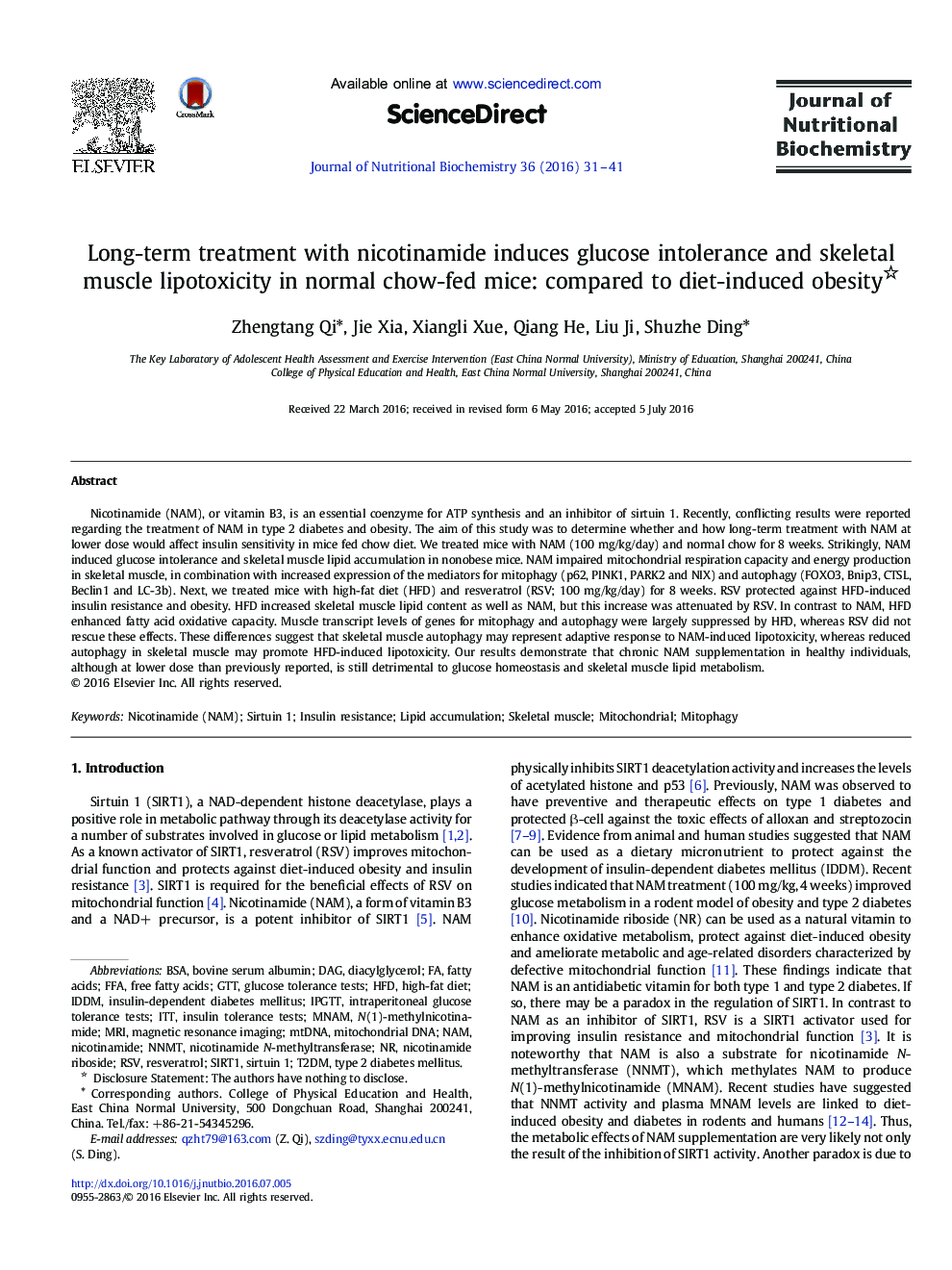| Article ID | Journal | Published Year | Pages | File Type |
|---|---|---|---|---|
| 1989565 | The Journal of Nutritional Biochemistry | 2016 | 11 Pages |
Nicotinamide (NAM), or vitamin B3, is an essential coenzyme for ATP synthesis and an inhibitor of sirtuin 1. Recently, conflicting results were reported regarding the treatment of NAM in type 2 diabetes and obesity. The aim of this study was to determine whether and how long-term treatment with NAM at lower dose would affect insulin sensitivity in mice fed chow diet. We treated mice with NAM (100 mg/kg/day) and normal chow for 8 weeks. Strikingly, NAM induced glucose intolerance and skeletal muscle lipid accumulation in nonobese mice. NAM impaired mitochondrial respiration capacity and energy production in skeletal muscle, in combination with increased expression of the mediators for mitophagy (p62, PINK1, PARK2 and NIX) and autophagy (FOXO3, Bnip3, CTSL, Beclin1 and LC-3b). Next, we treated mice with high-fat diet (HFD) and resveratrol (RSV; 100 mg/kg/day) for 8 weeks. RSV protected against HFD-induced insulin resistance and obesity. HFD increased skeletal muscle lipid content as well as NAM, but this increase was attenuated by RSV. In contrast to NAM, HFD enhanced fatty acid oxidative capacity. Muscle transcript levels of genes for mitophagy and autophagy were largely suppressed by HFD, whereas RSV did not rescue these effects. These differences suggest that skeletal muscle autophagy may represent adaptive response to NAM-induced lipotoxicity, whereas reduced autophagy in skeletal muscle may promote HFD-induced lipotoxicity. Our results demonstrate that chronic NAM supplementation in healthy individuals, although at lower dose than previously reported, is still detrimental to glucose homeostasis and skeletal muscle lipid metabolism.
